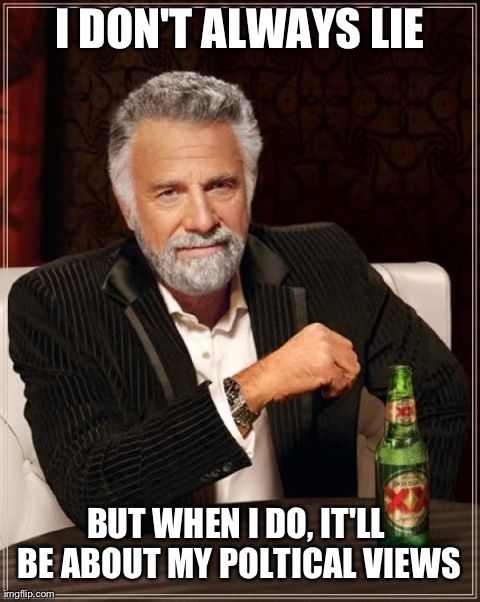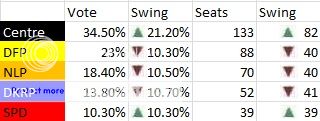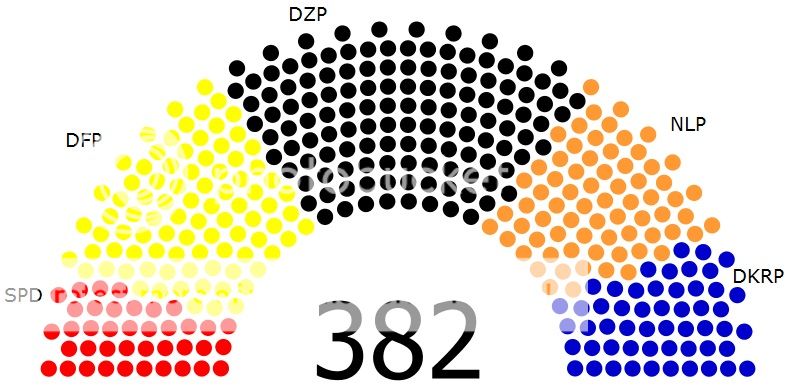Blood and Iron - An Interactive Prussian AAR
- Thread starter Tommy4ever
- Start date
-
We have updated our Community Code of Conduct. Please read through the new rules for the forum that are an integral part of Paradox Interactive’s User Agreement.
You are using an out of date browser. It may not display this or other websites correctly.
You should upgrade or use an alternative browser.
You should upgrade or use an alternative browser.
Can a third party do a recount? I was fairly certain my poll was right, and it matched up with all other polls. This is an important election, and three heads is always better than two.
I've just done another recount, so I am now certain that my results are correct. Maybe you missed a vote here or there because people didn't bold their votes properly?
Regardless the most recent vote has made a DZP-DKRP alliance untenable again. The balls back in the liberal court. Its very rare for the result to be so in doubt at this late stage of the election, 44 votes in all.
I've just done another recount, so I am now certain that my results are correct. Maybe you missed a vote here or there because people didn't bold their votes properly?
Regardless the most recent vote has made a DZP-DKRP alliance untenable again. The balls back in the liberal court. Its very rare for the result to be so in doubt at this late stage of the election, 44 votes in all.
Alright, fair enough. I'm anxiously awaiting the end of voting, this is an exciting election!
I've just done another recount, so I am now certain that my results are correct. Maybe you missed a vote here or there because people didn't bold their votes properly?
Regardless the most recent vote has made a DZP-DKRP alliance untenable again. The balls back in the liberal court. Its very rare for the result to be so in doubt at this late stage of the election, 44 votes in all.
Not sure if I've asked this before, but what are the chances of a Liberal grand coalition forming between Zentrum, the DFP and NLP should a Zentrum/DKRP coalition fall through or fail to have the necessary numbers?
Not sure if I've asked this before, but what are the chances of a Liberal grand coalition forming between Zentrum, the DFP and NLP should a Zentrum/DKRP coalition fall through or fail to have the necessary numbers?
NLP isn't necessary.
NLP isn't necessary.
I didn't ask if any particular party would be mathematically necessary to form a particular coalition; I asked whether or not a Liberal grand coalition would be politically possible should a Zentrum/DKRP coalition fall through.
I'd guess theoretically it would work, they being all liberals, but practically i'd think they'd have their issues, them having almost all different policies excluding them being liberals. But i'd guess my uneducated guess isn't enough. 
I'd guess theoretically it would work, they being all liberals, but practically i'd think they'd have their issues, them having almost all different policies excluding them being liberals. But i'd guess my uneducated guess isn't enough.
Kulturkampf being the main such issue. Then again, Kulturkampf would be an issue of contention with any party Zentrum hopes to form a coalition with sans the SPD.
I'd think for the purpose of coming into power, the NLP and DFP would be more than happy to change their policy regarding the Kulturkampf, Like the DKRP would be, but they'd be much more harder to talk over, it would depend on how much the elections counts for, and in this one, Alot.Kulturkampf being the main such issue. Then again, Kulturkampf would be an issue of contention with any party Zentrum hopes to form a coalition with sans the SPD.
Last edited:
Go ahead SPD people, THROW YOUR VOTE AWAAAAY!!!!! MWAHAHAHAHA!!!
I suddenly feel so dirty...
I suddenly feel so dirty...
And the polls are closed!
Total Vote: 48 - an increase in the turnout for the 4th successive election .
.
DZP: 15
DFP: 10
NLP: 8
DKRP: 6
SPD: 9 (4.5 due to laws)
The Centre Party will attempt to form a coalition government alongside the German Progress Party (DFP).
Total Vote: 48 - an increase in the turnout for the 4th successive election
DZP: 15
DFP: 10
NLP: 8
DKRP: 6
SPD: 9 (4.5 due to laws)
The Centre Party will attempt to form a coalition government alongside the German Progress Party (DFP).
The Election of 1873
With the war in France reaching towards its conclusion and the collapse of the ruling coalition of National Liberals and Conservatives Germany went to the polls in December 1873 for the second time as a unified nation – the issues of the Kulturkampf and what to demand of the defeated French Empire dominating proceedings.
The results of the election were truly spectacular as both the traditional power houses of German politics – Liberalism and Conservatism – were rejected in favour of the rising forces of Christian Democracy and Socialism, two ideologies in opposition to Prussia’s domination of the German Empire. The biggest winners of the election were, without a shadow of a doubt, the Centre Party. In a country where Catholics made up just under 1/3 of the population and were proportionally declining the Centre (traditionally a party based upon the support for Catholic rights) achieved its aim of expanding its constituency well beyond the heartlands of the Church. Although reaching new levels of dominance in Southern Germany (as well as amongst French and Polish Catholic communities) the Centre successfully reached out into the North – winning notable successes in Hannover and the Rhineland as liberals and conservatives alike switched allegiances to the Centre. Moreover, the Centre had become the Reichstag’s largest party, holding 45 seats more than the next largest party. The other big winners were the Socialists who, despite having to run candidates as independents and in repressive conditions, scored a shade over 10% of the vote and secured a credible presence in the Reichstag with 39 members elected. This result was even more impressive considering that the party’s core constituency – industrial workers – made up just 8.1% of the population and the party had to compete with other groups (notably the Centre amongst Catholic workers and the DFP and NLP in traditional liberal heartlands) amongst this group. So early in its lifetime the SPD was already extending its reach to white collar workers, artisanal workers and even into the peasantry in the countryside.
If there were big winners in 1873 there were even greater losers. With each of the DFP, NLP and DKRP all losing around 10% of the vote and either 40 or 41 Reichstag members a piece it is at first unclear who the worst loser in this election was. That is until one looks at recent German political history – even unified under the banner of the DKRP German conservatism had slipped yet further into political insignificance. In the first election after unification German conservatives lost almost 20% of the vote on the previous election in North Germany, whilst in contrast the two liberal parties won over 60%. The liberals may have lost more votes in all – but they were falling from a position of strength whilst the conservatives were at their lowest ebb since 1848, maybe even the era of the French Revolution. So, as the DKRP only barely outscored the Socialists to avoid being the smallest party in the Reichstag the two liberal parties both won around 20% of the vote, both remaining a powerful political force.
For all the joy of the Centre at their great electoral victories, and at the failure of the liberals to win the majority they had expected the DZP remained a long way off from a majority of their own. Even talk of an alliance against liberalism with the Conservatives had to be abandoned due to the awful showing of Bismarck’s party at the polls. Instead the leaders of the Centre approached the German Progress Party – portraying themselves as the champions opposition the traditional Prussian elites whom the DFP had long battled against. With a genuine fear that a failure to agree to a coalition with the Centre could lead the Kaiser to jump at the opportunity to dissolve the Reichstag and hand power over to the right, the Progress Party agreed to unite with the DZP in government. With even the Socialist members of the Reichstag strongly urging such a government as a blow to the traditional hierarchy an uneasy alliance of Catholics and secular liberals was swept into power. Germany’s most outwardly radical government since 1848.
At least a head shorter than most of his fellow Reichstag members, Ludwig Windthorst became the first Catholic to head a Berlin based government since the Reformation. As the Kaiser was uneasily convinced to accept the new government (going against the advice of some members of the Army who called for a coup d’état) the Centre and DFP went about negotiating the terms of their alliance.
The most pertinent issues – what to demand of France – was decided with great ease as both parties agreed to demand Senegal and the French Ivory Coast. In terms of broader foreign policy the DZP conceded to the DFP the need for an expansive colonial policy with a view of building a large basis for the German Empire in West Africa, perhaps even expanding into other regions. Beyond this the DZP demanded control of the Foreign Ministry (with a DFP minister being appointed to a newly created ‘Colonial Ministry), the Centre’s policies of improving relations with other Great Powers in order to ensure peace being adopted. However it was also agreed that Germany would have to place a great emphasis on the construction of a large and modern fleet. In economic policy there was again compromise – with the promise of an implementation of a flat tax rate for all citizens (as opposed to the regressive taxes proposed by the DFP, and the progressive rates of the DZP), the limiting of state intervention in industry to regions with high urban unemployment and the abandonment of the Centre Party’s social reform programme. The issue of the Kulturkampf was simply non-negotiable for the Centre, the DFP being forced to accept an end to the policies of secularisation of the Catholic communities and the Germanisation of minorities. On the Anti-Socialist Laws the two parties clashed violently. The DZP identified the laws as an ideological acceptance of repression as a political tool of the nation – opening the door for a future restoration of the Kulturkampf or similar policies. The DFP, on the other hand, saw Socialism as a far graver threat than even Ultramontansim and refused to support their repeal. Instead the two parties agreed to a new measure in regards to the laws in which they required renewal by the Reichstag every 3 years – effectively setting a future date for decision on this issue. Finally the DFP’s hopes of a centralised and democratic state were rejected – however the DZP did manage to attract the DFP’s attention with proposals for a federalisation of Germany, as a means of countering the power of traditional aristocratic power it keenly interested the Progress Party.
With the hopes of traditionally politically marginalised groups raised to the sky, the new government moved quickly towards its first challenge – ending the war with France.
Well friends, it seems like a Jacobin-Papist government is deemed to rule our fair Germany, let us pray they do not sell our country to highest bidder or the pope. Sadly it seems socialism is beginning to amass in the nation, well, it was bound to happen anyway. Let's just hope they do not get any more support (unlikely ;P).
Waiting anxiously for the next update, great stuff!
You jinxed us all!
Waiting anxiously for the next update, great stuff!
Go ahead SPD people, THROW YOUR VOTE AWAAAAY!!!!! MWAHAHAHAHA!!!
I suddenly feel so dirty...
You jinxed us all!





